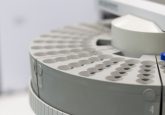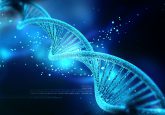Biomarkers of kidney transplant rejection identified
Three biomarkers allow for the non-invasive prognosis and diagnosis of acute kidney transplant rejection.
Researchers involved in the CTOT-04 Phase II clinical trial, led by Manikkam Suthanthiran, M.D., of Weill Cornell Medical College in New York and Abraham Shaked, M.D., Ph.D., of the University of Pennsylvania School of Medicine, Philadelphia have identified three biomarkers from urine samples of kidney transplant patients that are linked to the acute rejection of kidney transplants. These biomarkers show potential in allowing for the non-invasive prognosis and diagnosis of acute rejection of kidney transplants, and in doing so may facilitate doctors in prescribing personalized care for patients.
Renal biopsies are currently used to diagnose, and to an extent prognose, rejection through studying the tissue for rejection-associated damage. This is an invasive procedure exhibiting limited accuracy due to the small sample obtained. Three biomarkers found in urine were statistically analyzed and confirmed to be accurate diagnostic signatures of kidney rejection. The biomarkers are two mRNAs encoding the proteins CD3ε and IP-10, both of which participate in the immune system’s reaction leading to transplant rejection, as well as a non-coding rRNA which is implicated in protein production.
The biomarkers were identified in urine samples of 485 transplant recipients, and demonstrated steadily increasing levels followed by extremely elevated levels 20 days prior to acute rejection. This correlation is predicted to facilitate doctors in individualizing therapy plans including immunosuppressant drugs in order to prevent acute rejection of kidney transplants. Given the ease of acquiring urine samples and analyzing the biomarker levels in comparison to obtaining and analyzing renal biopsies; the results of this NIH-funded trial are of huge benefits to patients and medical doctors.
Going forward, the non-invasive analysis of biomarkers in urine allows for the accurate prediction of acute kidney transplant rejection and in doing so, creates potential for the formulation of personalized therapy plans of kidney transplant recipients.
Source: Suthanthiran M, Schwartz J, Ding R et al. Urinary cell mRNA profile and acute cellular rejection in kidney allografts. N Engl J Med. 369, 20–31 (2013).





